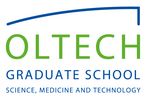Research data can not only influence the outcomes of a single research project but also result in enduring negative consequences for future use. Although honest errors do not involve deliberate falsification or fraud, a lack of sensible error culture often hinders data sharing. Authors fear that the transparency may unveil honest errors and “sloppy science”, making them vulnerable and potentially jeopardizing their reputation.

Dr. Ferdinand Esser, MBA
Scientific Coordinator of Early Career Researchers (doctoral and postdoctoral researchers) of the ICBM
Coordination of the PhD program 'Environmental Sciences and Biodiversity' and of ICBM-Alumni network
Managing director of the Graduate School Science, Medicine and Technology (OLTECH)
Carl von Ossietzky University Oldenburg
Institute for Chemistry and Biology of the Marine Environment (ICBM)
Carl-von-Ossietzky-Str. 9-11
26129 Oldenburg, GERMANY
Phone: +49 (0)441 / 798-3171
Office: W15 0-031
E-mail: ferdinand.esser@uol.de
Courses and events
Open Science and Error Culture in Academic Science
Environmental Sciences and Biodiversity
Doctoral programme/PhD programme 'Environmental Sciences and Biodiversity'
Profile of the PhD programme
To get a general idea of the PhD programme 'Environmental Sciences and Biodiversity' take a look at the overview.
Current programme
We offer a three year PhD with courses in three different modules:
- Specialised scientific knowledge (eng./germ.)
- Communicative competences (eng./germ.)
- Systemic competences and soft skills (eng./germ.)
The core of the programme is an independent doctoral research project in one of the participating research groups.
In addition to their scientific research, students have to take courses in three main areas (30-60 credit points):

Specialised scientific knowledge
In these courses students broaden and deepen their scientific knowledge in the context of their field of research and acquire the necessary skills to perform their laboratory work. Students take an active part in colloquia, congresses, summer schools and lab visits abroad (at least 12 credit points).
Communicative competence
Students are trained in communication and presentation techniques and improve their expertise in knowledge transfer (at least 6 credit points).
Interdisciplinary competences and soft skills
Students can develop strategies and expertise for their scientific career. The main issues are data management (statistics), project management, scientific writing, publishing own research results, writing proposals for grants and funds, and training for job application (at least 6 credit points).
Research
Further information on the scientific work and research you find on the homepages of Institute for Chemistry and Biology of the marine Environment (ICBM) and the Department of Biology and Environmental Sciences (IBU).
Junior Scientists
Further information about the opportunities for doctoral studies at ICBM: Institute for Chemistry and Biology of the Marine Environment



